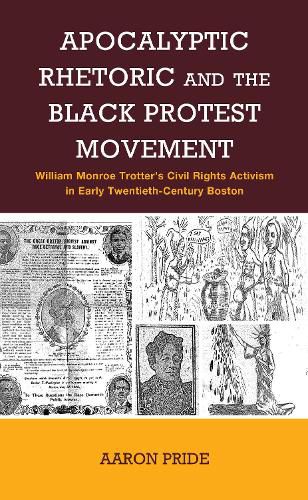Readings Newsletter
Become a Readings Member to make your shopping experience even easier.
Sign in or sign up for free!
You’re not far away from qualifying for FREE standard shipping within Australia
You’ve qualified for FREE standard shipping within Australia
The cart is loading…






Apocalyptic Rhetoric and the Black Protest Movement offers a challenging new formulation of African American religious culture by asserting that African American Christianity produced a militant millennialist movement that invoked the apocalypse, the kingdom of God, and the end of the world to compel Black people to oppose racial injustice in the early twentieth century. In this account of the Black civil rights movement in Boston in the early twentieth century, Aaron Pride argues that the apocalyptic rhetoric and millennial imagery disseminated from the Boston Guardian by William Monroe Trotter cast Booker T. Washington and other opponents of Black protest as false prophets, biblical villains, and harbingers of the end times. By placing Black Christianity at the center of Black civil rights activism in the early twentieth century, this book provides a seminal interpretation of the emancipatory capacity of religion as cultural and intellectual force in social and political movements. This book will be of interest to scholars of cultural history, Black studies, and the history of religion.
$9.00 standard shipping within Australia
FREE standard shipping within Australia for orders over $100.00
Express & International shipping calculated at checkout
Apocalyptic Rhetoric and the Black Protest Movement offers a challenging new formulation of African American religious culture by asserting that African American Christianity produced a militant millennialist movement that invoked the apocalypse, the kingdom of God, and the end of the world to compel Black people to oppose racial injustice in the early twentieth century. In this account of the Black civil rights movement in Boston in the early twentieth century, Aaron Pride argues that the apocalyptic rhetoric and millennial imagery disseminated from the Boston Guardian by William Monroe Trotter cast Booker T. Washington and other opponents of Black protest as false prophets, biblical villains, and harbingers of the end times. By placing Black Christianity at the center of Black civil rights activism in the early twentieth century, this book provides a seminal interpretation of the emancipatory capacity of religion as cultural and intellectual force in social and political movements. This book will be of interest to scholars of cultural history, Black studies, and the history of religion.